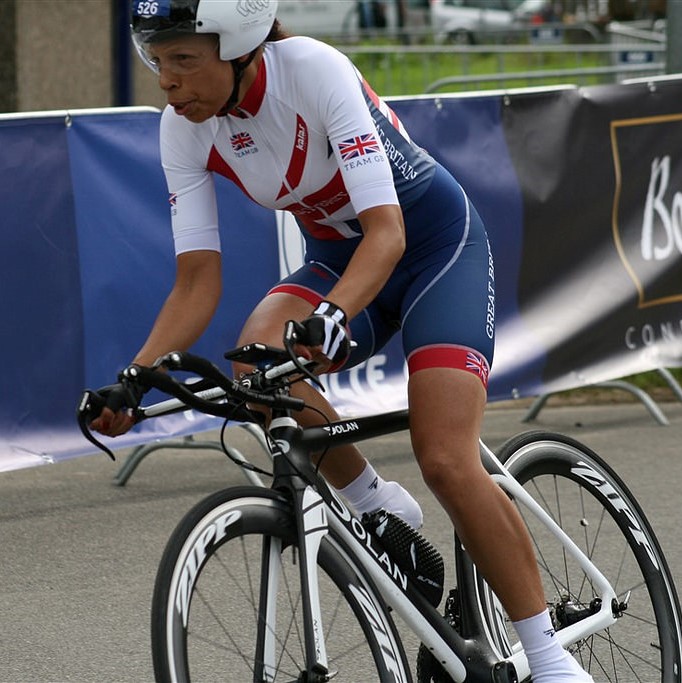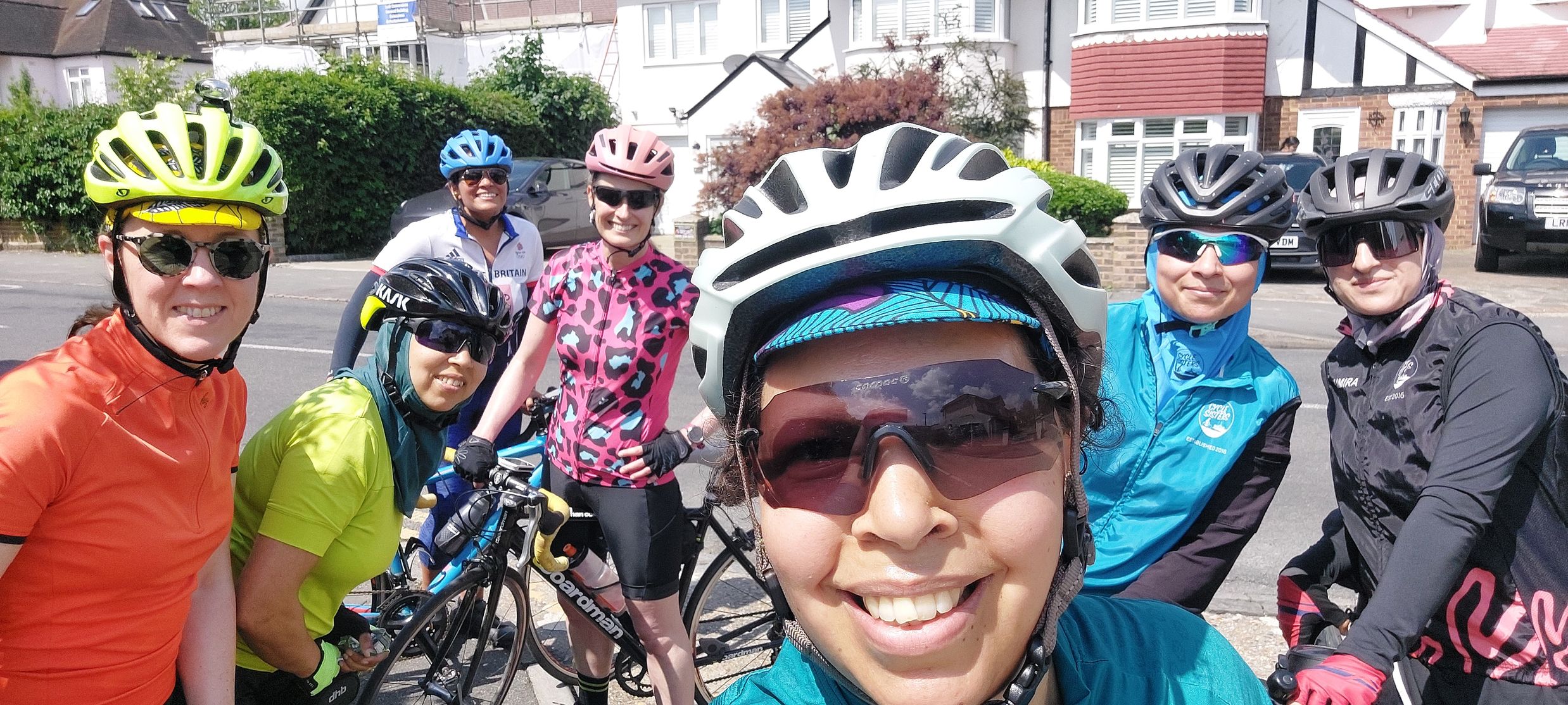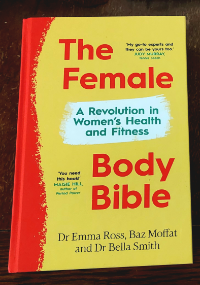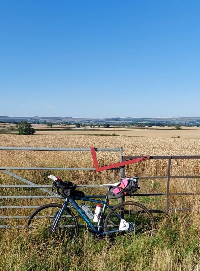This website use cookies to ensure you get the best experience on our website
ABOUT VELOQI
On a mission to challenge the patriarchy and empower people of colour, women and other marginalised genders
Are you training for a long distance event? Perhaps dipping your toe in to bikepacking and touring, or stretching your comfort zone with longer audaxes or ultra distance events? Do you have ambitions in time trialling or racing, on or off road? Discover a proven framework to transform you into an ultra radical rider, mentally and physically prepared to cross the finish line of an endurance or multiday event or race.
|
FITTER |
FASTER |
HEALTHIER |
HAPPIER |
|---|---|---|---|
|
Endurance and multiday events take a toll on the whole body. Consistently practicing strength and conditioning exercises and cross training, on a weekly basis reduces your risk of injury and the need to scratch your event due to a physical complaint |
Training for a long distance event is about making faster easier. Females are natural fat burners, so we don't need to be doing a gazillion hours in zone 2. Gender specific training means you can make the most of your precious time |
Practicing selfcare is essential when training for an ultra event. Without sufficient rest and sleep the body isn't going to be able to recover from the training and get stronger. Arriving fresh on the start line is half the battle won |
The longer the event, the more important mental strength becomes. Developing strategies to keep you focused and motivated is part of the preparation process. When you stretch your comfort zone, you learn so much about yourself |
Who am I?
I AM A DISRUPTOR
Hey, I'm Coach Alison. I'm on a mission to change the cycling community, to disrupt the current patriarchal system through my passion for cycling. I hope to guide every woman, person of colour and marginalised gender on a path of self empowerment through achieving audacious cycling goals. There is a painful lack of diversity throughout cycling, affecting the decisions made that affect us all. From the way British Cycling tutors treat grassroots coaches, to government level decisions on travel infrastructure, from cycling industry boardrooms of singular demographics to abysmally poor kit sizing for differently shaped women. I can't fix all this alone, but perhaps by creating a space which nurtures and encourages more diverse cyclists to do awesome things, it will be harder for us to be ignored.
See, there's me, disrupting again . . . . . . . .

I've now coached many cyclists across the finish lines of the toughest self-supported ultra distance events in the UK including GB Duro, the Pan Celtic Race and the London Edinburgh London audax. Through that process, and through my own experiences in racing and riding long distance events, I've developed a framework that can be applied to anyone training for an endurance or multiday event or race, incorporating athlete centred coaching theories, with a focus on self care, body specific training and developing the right mindset. It doesn't involve spending every waking hour in the saddle, or being obsessed with data, and doesn't have to involve causing permanent damage to yourself!


I started cycling in 2012, like many of us, I was inspired by the Olympics coming to London. I was challenged by my gym buddies to enter a triathlon. I said yes despite not being able to ride a bike! Fast forward a few years to 2015 and I'm a regular club rider, Level 2 British Cycling qualified skills coach, volunteering at a community cycling club in East London and a Breeze Champion leading rides in Essex. I went on to start racing in club and local time trials, criteriums and road races, with various levels of success(!), whilst getting into long distance rides and Audaxing.
I had even qualified for the UCI World Amateur Time Trial final in Denmark and got to race in GB kit! (pictured left). Cycling had taken over my life!
Here I am now, with a degree in Cycling Performance completed in 2019, a desire to share all that I've learned along the way and help as many others as possible. My coaching style is born from my own experiences of training and being coached for racing and long distance cycling, whilst also working fulltime and caring for a disabled family member. I also draw on experiences from my previous life as a dancer, training full time, where I learned how important being well conditioned is for avoiding injury, as well as an investment for later in life.

You need a coach who is aware that mental health is as important as your physical health, that our busy lives also impacts our ability to stress our bodies in training, who understands the ebbs and flows of motivation and the importance of building resilience to deal with the curve balls life sometimes throws at us, as well as being mindful that we, as women, need to train and eat differently to the advice given in mainstream publications, but mostly, the need for cycling to be protected as something that's fun and, for some of us, a way to refill our reservoirs of joy!
As a women and a person of colour I've experienced for myself how it feels to go to a cycling club or event and be the only person that looks like me. Through other ventures, such as the Women of Colour Cycling Collective, Ride for Unity, the Ultra Distance Scholarship, and my own women only cycling club in East London, I actively work towards improving diversity and gender equality in cycling.
Representation truly matters.
So, what's it like working with me?
We asked Alice to reflect on her journey working with me and preparing for one of the toughest self supported races in the UK. Working with Alice was so rewarding, seeing her confidence grow and the seed of self belief blossom. Having attempted GBDuro in a previous year, and having to scratch, Alice was both full of doubt and fired up with determination. It was incredibly emotional watching her dot inch it's way up the length of the UK. So proud of her achievement.
The longer the event the more important mental strength and resilience becomes. Purely focusing on physical fitness alone is not going to get you across the line. Testing yourself in event like situations, sleeping outside for consecutive days, passing through remote regions, having to get up the next morning and start riding again, even though your are already fatigued. Stretching your comfort zones in all of these areas, building that resilience, before your event gives you confidence and puts you in a much better head space.
The amazing Vera, winner of the Ultra Distance Scholarship 2021, answers a few questions about her experiences working with a coach and training for the 2000km Pan Celtic Race across Cornwall and Wales
WANT TO LEARN MORE?
Book a 20 minute chat with me to see if we're a good fit and discuss your goals for 2024!

Why you need to learn about the menopause,
no matter what your age
This week I received my copy of the new book just published by the amazing women at the Well HQ, The Female Body Bible. I can't wait to dig into it!
What an epic time to be living in. After decades of learning and following exercise and nutrition advice and protocols based on male physiology because we didn't know any different, we can finally learn about our own bodies. There are some fantastic reputable women pushing against the gender bias, and literally changing the world.
Always looking for more resources and knowledge, I signed up for a 5 day menopause challenge, run by an American Health Coach. It was full of great information and tips, but there was a lot of language used that just made me cringe, and at times, angry.

Ultra training basics
Time commitment for ultra distance training
One of the factors that might be putting you off entering a multiday event is the amount of time required for the training. It’s true, it is a big commitment, but there are ways you can use your time more wisely. Training for ultra distance events doesn’t have to mean spending every waking hour in the saddle.
Let’s take a look at the demands of an ultra distance event, in the simplest of terms:
- Being able to cover long distances in a 24 hour period, and repeating that over multiple days
- Being self-sufficient on the road
- Managing hydration and nutrition
- Having a sleep strategy that works for you
In this article we’ll be looking at the first of these event demands. . . .